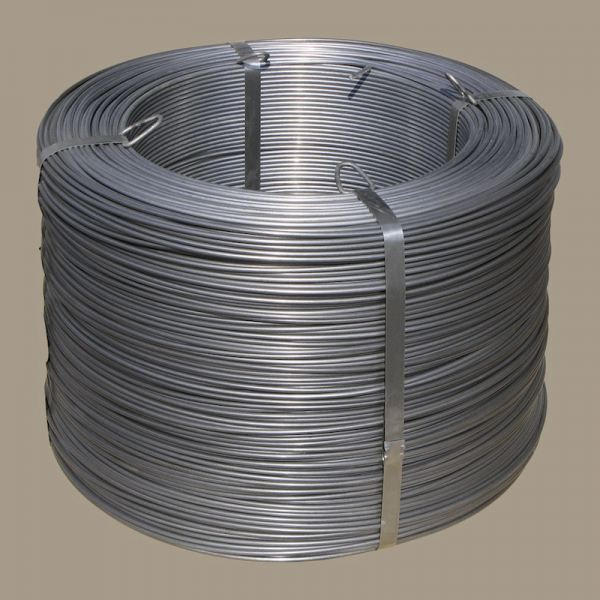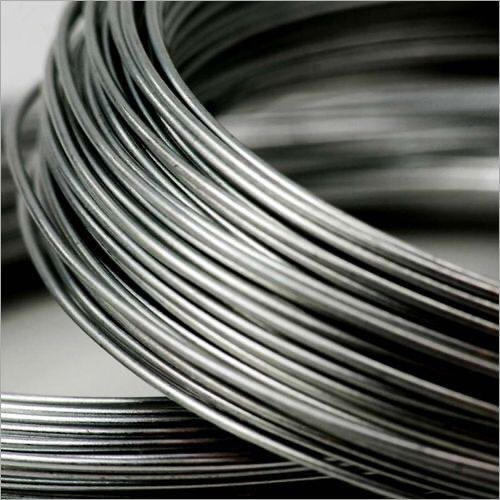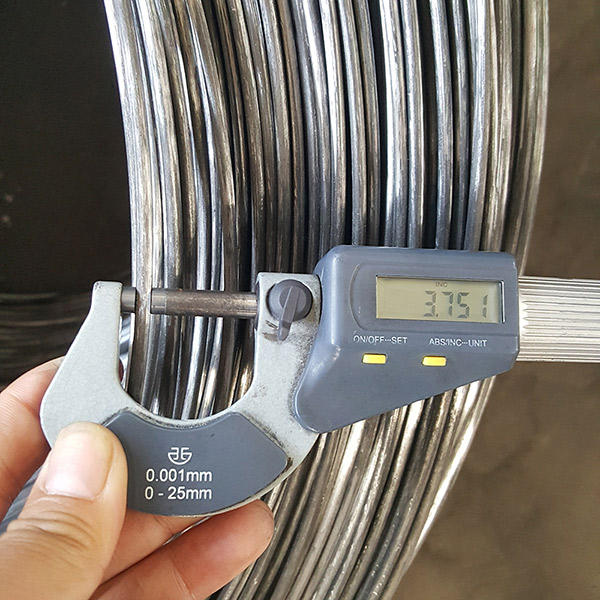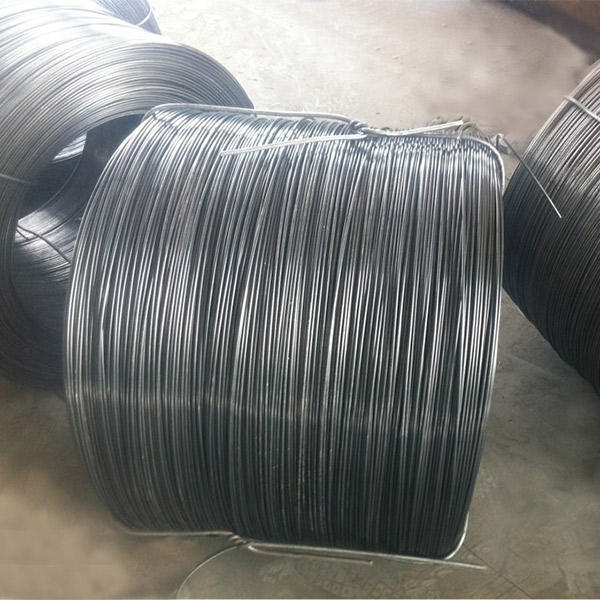Aug . 19, 2025 01:00 Back to list
Welded Wire Mesh for Industry | Factory Direct & Durable Solutions
The Pivotal Role of Welded Wire Mesh in Modern Industrial Applications
In the rapidly evolving landscape of industrial infrastructure and manufacturing, the demand for robust, reliable, and cost-effective materials is paramount. Among these, welded wire mesh for industry factory environments stands out as a foundational component, offering unparalleled versatility and structural integrity. Its pervasive use across a multitude of sectors underscores its importance as a critical material science innovation, supporting everything from foundational structural elements to intricate filtration systems. The unique properties of welded wire mesh, derived from its precise manufacturing process, enable it to withstand extreme conditions, including high tensile stress, corrosive agents, and significant temperature fluctuations, making it indispensable for ensuring operational longevity and safety. As industries globally navigate towards greater efficiency and sustainability, the selection of materials like welded wire mesh becomes a strategic decision impacting not only initial construction costs but also long-term maintenance, energy consumption, and environmental footprint. Understanding the technical nuances, application spectrum, and advantages of modern welded wire mesh is crucial for B2B decision-makers seeking to optimize their industrial processes and enhance structural resilience. This deep dive aims to provide a comprehensive overview, leveraging technical insights and empirical data to illuminate the value proposition of this essential industrial material.
The market for industrial wire mesh solutions is characterized by continuous innovation, driven by advancements in material science and manufacturing technologies. Modern solutions are engineered to meet stringent industry standards, offering superior performance attributes such as enhanced corrosion resistance, increased load-bearing capacity, and optimized flow characteristics for fluid management. This evolution is particularly vital for sectors where material failure can lead to catastrophic consequences, such as in petrochemical refineries, large-scale metallurgical operations, and complex water treatment facilities. Furthermore, the global trend towards automation and smart manufacturing necessitates materials that can be precisely integrated into complex systems, often requiring custom specifications that standard products cannot fulfill. Therefore, understanding the comprehensive capabilities and customization potential of welded wire mesh for industry factory applications is not merely about procurement; it is about investing in a foundational technology that underpins operational excellence and competitive advantage. The ability to source high-quality mesh that adheres to rigorous international standards like ISO and ASTM, while also offering tailored solutions, distinguishes leading manufacturers and suppliers in this specialized field.
Manufacturing Process of Industrial Welded Wire Mesh: From Cold Drawn Wire to Precision Product
The production of industrial welded wire mesh for industry factory environments is a highly specialized process, beginning with the selection of premium raw materials, typically high-carbon steel or stainless steel wires. The foundational material, Cold Drawn Wire, is critical, as its precise diameter, surface finish, and tensile strength directly influence the final product's performance. The manufacturing journey commences with the uncoiling of these wires, which are then straightened and cut to precise lengths, ensuring dimensional accuracy for the subsequent welding stage. This initial preparation is crucial to minimize material waste and ensure uniform quality across the entire mesh panel. Following cutting, the wires are fed into sophisticated, automated welding machines. These machines employ resistance welding, a method where an electric current passes through the intersection of two wires, generating heat that melts and fuses them together under pressure. This creates a strong, consistent, and durable weld joint, which is essential for the structural integrity of the mesh. The welding parameters, including current, time, and pressure, are meticulously controlled to achieve optimal weld penetration without compromising the wire's inherent strength.

Post-welding, the mesh panels undergo a series of critical quality control checks. These include visual inspections for weld integrity and consistency, dimensional accuracy checks to ensure compliance with specified mesh openings and panel sizes, and mechanical tests such as tensile strength and shear strength tests on the weld points. Adherence to international standards like ISO 9001 for quality management and ASTM A185/A497 for steel wire mesh is non-negotiable, ensuring that the finished product meets the rigorous demands of industrial applications. For specific corrosive environments, mesh may undergo further treatment such as galvanization (hot-dip or electro-galvanized), PVC coating, or passivation for stainless steel, enhancing its resistance to rust and chemical degradation. These treatments extend the product's service life significantly, often ranging from 20 to 50 years depending on the application and environmental conditions. The entire process, from wire drawing to final inspection, is designed to produce a product that offers superior strength-to-weight ratio, excellent energy efficiency in specific applications (e.g., as part of thermal insulation systems), and unparalleled resistance to the harsh conditions prevalent in sectors such as petrochemical, metallurgy, mining, construction, and water/wastewater treatment.
Technical Specifications and Performance Parameters of Industrial Welded Wire Mesh
The performance of industrial welded wire mesh for industry factories is defined by a comprehensive set of technical specifications and material properties, which are critical for engineers and procurement specialists to consider. Key parameters include wire diameter, mesh opening size (aperture), material grade, and surface finish. Wire diameters typically range from 1.0 mm to 12.0 mm, influencing the mesh's load-bearing capacity and rigidity. Mesh openings, which dictate filtration efficiency or structural spacing, can vary widely from ultra-fine 5x5 mm squares to larger 100x100 mm rectangles, or even custom configurations. Material grades commonly include low carbon steel, high carbon steel, stainless steel grades (e.g., 304, 316, 316L for enhanced corrosion resistance), and specialized alloys for extreme environments. Tensile strength, measured in megapascals (MPa), indicates the maximum stress the wire can withstand before breaking, with typical values for cold drawn wire ranging from 550 MPa to 750 MPa, significantly higher than hot-rolled wire. Weld shear strength, a crucial metric for welded products, ensures the integrity of the fused intersections and is often specified as a percentage of the wire's ultimate tensile strength.

Further technical considerations include panel dimensions (length and width), edge conditions (trimmed or untrimmed), and any post-treatment processes like galvanization or powder coating. For instance, hot-dip galvanization typically applies a zinc coating of 60-300 g/m², providing excellent sacrificial corrosion protection, particularly vital in marine or chemical processing environments. The choice of coating directly impacts the mesh's lifespan and maintenance requirements. Furthermore, compliance with specific industry standards such as ASTM A740 for industrial woven wire products, or region-specific standards like EN 10223-4 for steel wire mesh for fences, is a testament to product quality and reliability. Below is a representative table of common technical parameters for industrial welded wire mesh, illustrating the range and precision involved in its specification. This granular level of detail ensures that the chosen mesh perfectly aligns with the structural, filtration, or security requirements of any industrial application, delivering optimal performance and return on investment.
| Parameter | Typical Range / Value | Measurement Unit | Significance for Industry |
|---|---|---|---|
| Wire Diameter | 1.5 - 10.0 | mm | Directly impacts structural strength & load-bearing capacity. |
| Mesh Opening (Aperture) | 12.7 x 12.7 to 100 x 100 | mm | Determines filtration size, security level, or design aesthetic. |
| Material Grade | Low Carbon Steel, SS304, SS316 | N/A | Influences corrosion resistance, ductility, and cost. |
| Tensile Strength (Cold Drawn) | 550 - 750 | MPa | Indicates wire's resistance to breaking under tension. |
| Weld Shear Strength | >70% of Wire Tensile Strength | % | Crucial for mesh structural integrity, preventing weld separation. |
| Surface Treatment | Galvanized, PVC Coated, Polished | N/A | Enhances corrosion resistance, aesthetics, and lifespan. |
Diverse Application Scenarios and Technical Advantages in Industrial Settings
The applicability of welded wire mesh for industry manufacturers spans an impressively broad spectrum of sectors, each leveraging its unique combination of strength, permeability, and durability. In the petrochemical industry, for instance, mesh is critical for safety enclosures, catalyst support grids, and in the construction of distillation columns where precise separation and support are required. Its corrosion resistance, especially with stainless steel grades like SS316L, ensures longevity in harsh chemical environments, reducing the frequency of costly shutdowns for maintenance. Within the metallurgical and mining sectors, it serves as durable sieving screens for ore processing, protective barriers in hazardous zones, and reinforcement in concrete structures, capable of withstanding abrasive materials and heavy loads. The robust nature of the welds ensures that the mesh retains its form and function even under constant vibration and stress. For water and wastewater treatment facilities, fine mesh serves as an essential filtration medium, removing particulate matter and ensuring water quality, while larger mesh panels provide structural support for tanks and filtration beds.

Beyond these, welded wire mesh for industry suppliers also finds extensive use in construction for concrete reinforcement (as steel fabric), in agriculture for specialized fencing and animal enclosures, and in the automotive industry for protective grilles and filtration components. The technical advantages are numerous: its precise grid pattern ensures uniform load distribution, superior to individual wires for certain applications. The welding process itself imparts rigidity, minimizing deformation under stress and extending service life, which contributes to energy savings by reducing the need for frequent material replacement. Furthermore, the inherent design allows for excellent airflow and light penetration, making it ideal for safety guarding and ventilation screens without impeding visibility. The material’s inherent properties, coupled with advanced manufacturing techniques, result in a product that not only meets but often exceeds the demanding performance expectations of modern industrial operations, offering a significant return on investment through durability, efficiency, and enhanced safety protocols across various challenging environments.
Navigating the Market: Manufacturer Comparison and Customization Options
Selecting the right supplier for industrial welded wire mesh for industry factory needs requires a discerning eye, evaluating not just cost but also quality assurance, production capabilities, and customer support. Leading manufacturers distinguish themselves through adherence to stringent international standards (e.g., ISO 9001, CE), robust quality control processes, and the ability to offer comprehensive material testing documentation. A critical aspect of manufacturer comparison involves assessing their raw material sourcing, as the quality of cold drawn wire directly impacts the final mesh product's performance. Manufacturers with integrated production lines, from wire drawing to mesh welding and post-treatment, often provide better consistency and traceability. Furthermore, their capacity for high-volume production without compromising precision is a key indicator of reliability for large-scale industrial projects. Reputable suppliers often have long-standing relationships with global industries, providing a testament to their product reliability and service commitment over extended periods.

Beyond standard offerings, the ability to provide customized solutions is a significant differentiator for welded wire mesh for industry manufacturers. Industrial applications frequently demand unique specifications concerning mesh dimensions, wire gauge combinations, aperture sizes, specific material alloys, and specialized coatings. For example, a petrochemical facility might require mesh with specific anti-corrosive properties and panel sizes to fit existing infrastructure, or a mining operation might need ultra-high tensile strength mesh for rockfall protection. Customization also extends to fabrication, including cutting, bending, and forming mesh into complex shapes, which can significantly reduce on-site installation time and labor costs. A manufacturer's engineering team should be capable of collaborating with clients to design bespoke mesh solutions that precisely meet performance criteria, cost efficiencies, and project timelines. This tailored approach ensures that the client receives a product that is not just compliant but optimized for their unique operational challenges, ultimately enhancing project efficiency and long-term asset value.
Application Case Studies: Welded Wire Mesh in Real-World Industrial Environments
The practical application of welded wire mesh for industry factories is best illustrated through successful real-world deployments. One notable instance involves a major municipal wastewater treatment plant upgrading its primary sedimentation tanks. The challenge was to enhance filtration efficiency for fine particulates while ensuring structural integrity in a constantly submerged, chemically aggressive environment. The solution involved custom-fabricated SS316L stainless steel welded wire mesh panels with precise 10x10 mm apertures, sized to fit the existing tank infrastructure. The high-grade stainless steel provided superior corrosion resistance against chlorine and various organic compounds, significantly extending the service life of the filtration system from an estimated 5 years (for previous material) to over 20 years. This resulted in substantial operational cost savings due to reduced maintenance and replacement frequencies, alongside improved effluent water quality. The project exemplifies how tailored mesh solutions can lead to both environmental benefits and economic efficiencies in public utility infrastructure.

Another compelling case study comes from a large-scale agricultural facility where the integrity of animal enclosures and feed segregation systems was paramount. Traditional fencing materials were prone to rapid degradation due to animal activity and environmental exposure. The implementation of heavy-gauge, hot-dip galvanized welded wire mesh for industry suppliers, specifically designed with small enough apertures to prevent escape but large enough for visibility, revolutionized their operations. The galvanization provided exceptional resistance to rust and wear, extending the lifespan of enclosures well beyond 30 years, drastically reducing replacement costs and ensuring animal safety and containment. Furthermore, the mesh's rigid structure facilitated easier cleaning and sanitation, contributing to healthier livestock. These examples underscore the versatility and long-term value proposition of high-quality welded wire mesh, demonstrating its capacity to solve complex industrial challenges, enhance operational safety, and deliver significant economic benefits through durability and customized performance.
Frequently Asked Questions (FAQ) and Customer Support for Welded Wire Mesh Solutions
Understanding client concerns and providing transparent information is foundational to building trust in the B2B sector. Here, we address common inquiries regarding industrial welded wire mesh for industry factory applications.
Q1: What are the typical lead times for custom welded wire mesh orders?
Lead times for custom welded wire mesh for industry factories can vary significantly based on material availability, complexity of specification, order volume, and current production schedules. For standard specifications and moderate volumes, typical delivery might range from 2-4 weeks after order confirmation. Highly specialized alloys, intricate fabrication, or very large projects could extend this to 6-10 weeks. We recommend early engagement with our sales and engineering teams to define precise requirements and receive an accurate lead time estimate, especially for time-critical industrial projects. Our robust supply chain management aims to minimize delays and provide timely updates throughout the production process, ensuring that your operational timelines are respected.

Q2: What kind of warranty or quality assurance do you offer for your products?
We stand by the quality and durability of our welded wire mesh for industry manufacturers. All products are manufactured under strict ISO 9001 certified quality management systems, ensuring consistent adherence to design specifications and performance standards. We offer a standard product warranty against manufacturing defects and material failures under normal operating conditions, typically ranging from 1 to 5 years, depending on the product type and application severity. For specific projects requiring extended assurance, bespoke warranty agreements can be negotiated. Comprehensive material test reports, mill certificates, and compliance documentation (e.g., ASTM, ANSI, EN) are provided with every shipment, underscoring our commitment to transparency and product reliability. Our dedicated customer support team is available to assist with any post-purchase inquiries, technical guidance, or claims, ensuring a seamless and satisfactory experience for our industrial clients.
Q3: Can your welded wire mesh products be adapted for extreme temperature or corrosive environments?
Absolutely. Our expertise in industrial welded wire mesh for industry suppliers includes specialized solutions for challenging environments. For high-temperature applications, we offer mesh fabricated from high-nickel alloys or specialized stainless steel grades (e.g., 310S) that maintain structural integrity and resist oxidation at elevated temperatures. For highly corrosive environments, options include SS316L, Duplex stainless steels, or Hastelloy alloys, selected for their superior resistance to acids, alkalis, and chlorides. Furthermore, various protective coatings such as hot-dip galvanization, PVC coating, or specialized polymer coatings can be applied to enhance corrosion resistance and extend lifespan in aggressive chemical or marine settings. Our engineering team conducts thorough material selection assessments based on specific operational parameters to recommend the most suitable and cost-effective solution for your unique environmental challenges, ensuring optimal performance and longevity.
Conclusion: Strategic Imperatives for Industrial Welded Wire Mesh Procurement
The strategic importance of high-quality welded wire mesh for industry factory operations cannot be overstated. As a foundational material in countless industrial applications—from petrochemical and metallurgical to water treatment and construction—its selection directly impacts operational efficiency, safety, and long-term cost management. The advanced manufacturing processes, which leverage precision Cold Drawn Wire, coupled with rigorous adherence to international standards like ISO and ASTM, ensure that modern welded wire mesh offers unparalleled tensile strength, weld integrity, and resistance to environmental degradation. This technical superiority translates into tangible benefits for industrial clients: extended service life, reduced maintenance requirements, enhanced safety protocols, and optimized performance in critical infrastructure. The capability of leading manufacturers to provide highly customized solutions further solidifies its role as a versatile and indispensable component in complex industrial ecosystems.
For B2B decision-makers, a comprehensive understanding of the technical parameters, diverse application scenarios, and the robust customization options available for welded wire mesh for industry factories is essential. Partnering with reputable welded wire mesh for industry manufacturers and welded wire mesh for industry suppliers who prioritize quality, engineering expertise, and dedicated customer support will prove invaluable. Such partnerships ensure access to products that not only meet current industrial demands but also anticipate future challenges, delivering solutions that are both technologically advanced and economically viable. Investing in superior welded wire mesh is not merely a purchase; it is a strategic investment in the longevity, safety, and efficiency of industrial operations, driving sustained growth and competitive advantage in a demanding global market.
References
- American Society for Testing and Materials (ASTM) Standards for Steel Reinforcement.
- International Organization for Standardization (ISO) 9001: Quality Management Systems – Requirements.
- Journal of Materials Science: "Properties and Applications of Welded Wire Fabric in Concrete Reinforcement."
- National Institute of Standards and Technology (NIST) reports on Material Durability and Corrosion.
- European Standards (EN) for Steel Wire and Wire Products.
This is the last article
-
Welded Wire Mesh for Industry | Factory Direct & Durable Solutions
NewsAug.19,2025
-
Chain Link Fence-Anping County Puersen Hardware Wire Mesh Co., Ltd.|Durable Security&Versatile Applications
NewsAug.18,2025
-
Glass Food Storage Jar with Screw Wooden Lid - Anping County Puersen|Heat-Resistant & BPA Free
NewsAug.18,2025
-
Glass Food Storage Jar with Screw Wooden Lid - Anping County Puersen Hardware Wire Mesh Products Co., Ltd
NewsAug.18,2025
-
Glass Food Storage Jar with Screw Wooden Lid - Anping County Puersen Hardware Wire Mesh Products Co., Ltd|Eco-friendly Durable Storage
NewsAug.18,2025
-
Welded Wire Mesh for Industry | Factory Direct Supplies
NewsAug.18,2025

